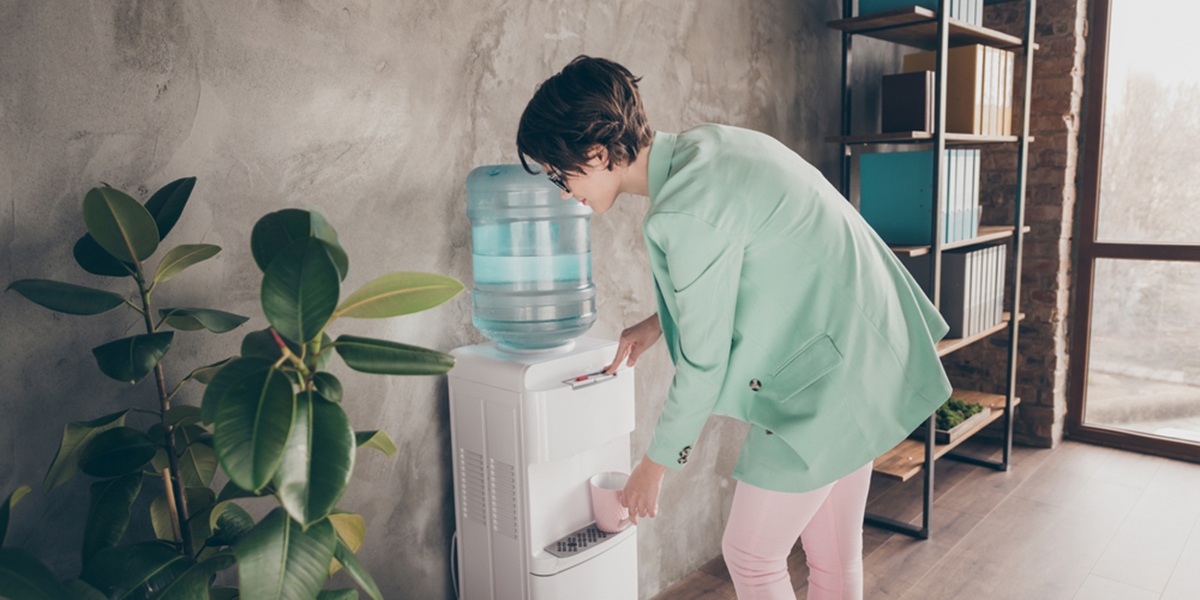Bobon Santoso Writes a Striking Message to Netizens: My Role Model is Tolerance, Not You, But the Prophet Muhammad SAW
Bobon Santoso has officially converted to Islam. He emphasizes that his role model is not netizens, but the Prophet Muhammad SAW.

Kapanlagi.com - Ramadan fasting is a moment filled with blessings for Muslims, but it also brings its own challenges. For more than 12 hours each day, we are required to abstain from hunger and thirst. In this condition, the risk of dehydration lurks, especially if fluid intake during sahur and iftar is insufficient. Symptoms of dehydration can vary, ranging from dizziness, weakness, to dry mouth, and can even lead to loss of consciousness if not properly addressed.
To ensure our fasting worship goes smoothly and our bodies remain fit, it is important to adequately meet our fluid needs. Given the long hours without sufficient fluid intake, managing hydration becomes crucial. If neglected, dehydration can trigger serious health issues.
So, how can we prevent dehydration while fasting? Here are some practical steps you can take to keep your body hydrated and avoid health risks caused by a lack of fluids.
To keep the body hydrated during fasting, it is important to follow the right drinking pattern. Experts recommend the 2-4-2 pattern, which is:
This method can help maintain optimal body fluid balance.
Tea, coffee, and carbonated drinks contain caffeine, which is diuretic, meaning it can increase the frequency of urination and cause the body to lose fluids more quickly. Instead, choose plain water or infused water for a healthier option.
In addition to drinking plain water, you can also obtain fluids from food. Fruits such as watermelon, melon, grapes, and oranges are rich in water and can help keep the body hydrated. Vegetables like cucumbers, tomatoes, and lettuce are also good to consume during sahur and iftar.
Soups, clear vegetable dishes, or soto can be good sahur food choices because they contain a lot of fluids. Soupy foods can also help prevent digestive issues like constipation that often occur during fasting.
Foods that are too salty can increase the body's need for fluids and accelerate the dehydration process. Therefore, avoid high-sodium foods such as processed foods, chips, or salted fish during sahur.
Drinks or foods high in sugar can cause a spike in blood sugar that then drops drastically, making the body easily fatigued and thirsty more quickly. It is better to consume complex carbohydrates and proteins that provide more stable energy.
Engaging in overly intense physical activity while fasting can increase sweat production and accelerate fluid loss. Instead, choose light exercises such as walking or yoga that maintain fitness without increasing the risk of dehydration.
Lack of sleep can worsen the effects of dehydration and make the body feel more fatigued while fasting. Therefore, ensure you get enough sleep so that your body is better prepared to fast without feeling excessively tired.
Some signs of dehydration to watch out for include:
If symptoms worsen, such as increased heart rate, difficulty concentrating, or feeling faint, seek medical assistance immediately.
Some medications, such as diuretics, can increase the frequency of urination and accelerate dehydration. If you are taking certain medications, consult your doctor to adjust the dosage or find safer alternatives during fasting.
It is recommended to drink at least 8 glasses of water per day with a pattern of 2-4-2 to maintain body hydration.
It is best to avoid it because it contains caffeine, which can increase the risk of dehydration.
Yes, but choose light exercises such as walking or yoga to prevent excessive fluid loss.
Signs of dehydration include excessive thirst, dizziness, dark-colored urine, and dry skin. If you experience severe symptoms such as a racing heart or difficulty concentrating, consult a doctor immediately.
(kpl/rmt)
Cobain For You Page (FYP) Yang kamu suka ada di sini,
lihat isinya
Bobon Santoso has officially converted to Islam. He emphasizes that his role model is not netizens, but the Prophet Muhammad SAW.
Ahyeon BABYMONSTER appears with short hair, stunning netizens! Check out the photos and reactions here.
Fiersa Besari teaches his daughter the TikTok Velocity trend, netizens' reactions are unexpected! Check out the viral video and the buzzing comments.
Ayu Ting Ting reposted by Jennie BLACKPINK! Her dance cover video went viral, netizens are excited. What actually happened?
Annisa Pohan and Almira look harmonious in batik outfits. Netizens even say they resemble siblings more than a mother and daughter.
Citra Monica celebrates Ifan Seventeen's birthday with a touching message, revealing a marriage journey filled with challenges.
Zaskia Adya Mecca takes her five children to hunt for takjil, but their journey ends up with them falling asleep in the car.
Ersa Mayori spends Ramadan in the hospital after her husband, Otto Djauhari, suddenly has a high fever and needs to be hospitalized.
Ayu Ting Ting shares moments of breaking fast with her cousins on Instagram, netizens are amazed by their beautiful faces.
Marisya Icha shares basic necessities on the streets during Ramadan. She reveals the reason behind her action that went viral on social media.
Andrew White surprised Nana Mirdad for her 40th birthday, including the presence of their son who returned from Australia.
Moana continues to attend gymnastics classes while fasting. Ria Ricis calls this a ‘military training’ for the sake of the takjil war.